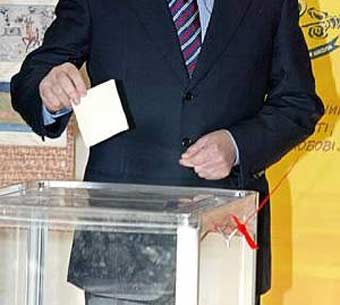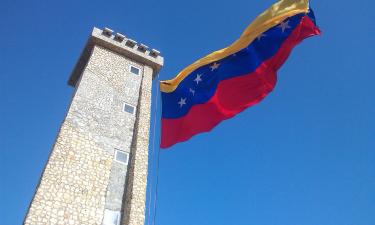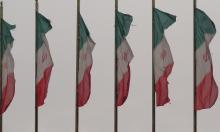Perils of proportional representation
Jon Basil Utley
Proportional representation creates dysfunctional democracies Most democracies in the Third World have not brought about great prosperity. Many are corrupt, dysfunctional, and in disarray, unable to control crime or perform the most basic functions of civil society.
Most democracies in the Third World have not brought about great prosperity. Many are corrupt, dysfunctional, and in disarray, unable to control crime or perform the most basic functions of civil society.
As Washington promotes a constitution for Iraq and Arab rulers are pressed to reform, we would do well to analyze why some democracies work so much better than others.
The rules for economic development and effective government are proven and well known; what's less understood is why many societies are unable to adopt them. The failure is often blamed on their cultures or on corruption, but a common affliction is their political structures: nearly all have proportional representation (PR).
To understand PR, imagine if our Congress were composed of four parties, Democrats, Republicans, a traditionalist Old Right Party, and Greens, each of the last two with 5 percent of the seats. Also imagine that each party is run by the old men who had been around the longest, perhaps a Senator Byrd for one and Bob Dole for another. There would be little new thinking and close political disputes would often be decided by the swing votes - the Old Right and Greens. That system of government, with even more parties, afflicts most of Eastern Europe and Latin America. Any political party that can garner at least 5 percent of the vote would obtain representation in Congress.
It gets worse. Each party runs nationwide, and its candidates are determined by lists controlled by each party's machinery—usually old-timers who are owed favors and remember grudges. The old men name themselves to the top of the list while the younger start at the bottom, if the bosses approve of them. If the party then wins 40 seats in Congress, the first 40 names on the list get selected. Old politicians like this system: they rarely lose office. Also, reformers - often seen as troublemakers - can be eliminated by simply keeping them off, or at the bottom, of the lists. Corruption is endemic and protected as voters can't throw out an individual representative. As long as their party gets at least 5 percent of the vote, the old-timers at the top of the list will always have seats in Congress and decide who else gets on the lists. In parliamentary governments, the winning alliance then votes for one of their old leaders to become prime minister.
In the American and English systems, each legislator represents a distinct geographical region. He can be voted out in the next election and new candidates can challenge a powerful incumbent. With proportional representation, those who represent the whole nation or large parts of it represent everybody and nobody. They can speak in generalities and are rarely called to account for specific votes, policies, or consequences.
Venezuela is a perfect example, all too typical of Latin America. From the '70s to the '90s, two old men, Carlos Andres Perez and Rafael Caldera, each won the presidency twice as voters had no other choice: in rejecting one, they got the other. In their desperation to get rid of the corrupt, incompetent, statist, and paralyzed old parties, they voted for leftist ideologue Hugo Chavez, the current president. Vladimir Chelminski, former director of the Venezuela's Chamber of Commerce, described the situation in the Wall Street Journal:
For decades, the quality of life had been deteriorating. The democratic process seemed to function well only for the benefit of politicians and their friends. The political parties that had alternated in power since 1958, Social Democrats and Social Christians, were very much the same. Both offered socialism with political freedom. Their policies paid lip service to the poor but always proved counterproductive. Private property and contracts meant little in their laws. Two-thirds of willing workers could not find employment in the formal economy...
Israel's government offers another example of nationwide proportional representation. A party can get seats in the Knesset if it wins just 1.5 percent of the nationwide popular vote, some 55,000 votes. The system gives crucial power to the religious parties, a determined minority that gains some 20 percent of the vote. As the swing bloc, which could go with the Labor or Likud to form a government, they have such great political power that they are exempt from military service. Many don't even have jobs or pay taxes.
There are a few nations doing fairly well with systems of PR, Slovakia and Spain, for example. But they are young democracies with young leaders. Their parliaments haven't yet atrophied into the paralysis of older PR governments. They are also ethnically homogeneous. Note, however, that the successful East Asian democracies (and India) do not use proportional representation, although some have a mixed system with 10 to 20 percent of their legislatures elected with PR. Russia's Duma is 50 percent PR, Mexico's is 40 percent. Chile is one of the very few Latin American nations not to use the system.
Ruth Richardson, former Finance Minister of New Zealand and an architect of that nation's free-market reform and prosperity in the early '90s, spoke at a conference last year in Moscow sponsored by Cato Institute. She argued that many nations “afflicted with proportional representation” had a low quality of public policy and great difficulty at legislating meaningful reforms. She cited much of Western Europe as an example. Except for England, it has been unable to reform its paralyzing labor laws and anti-entrepreneurial regulations.
Peru's great economist Hernando de Soto also focused on this problem in his classic book The Other Path, arguing that democracy works so much better in Anglo-Saxon nations because they do not use PR.
With this global civics lesson at its disposal, the United States still chose proportional representation for its Iraqi experiment in democratic transition. The system draws no electoral districts with distinct territorial representation such as the U.S. Congress, which gives a balancing power to smaller states and constituencies. Such a bicameral system as America has would help resolve the problem of protecting minorities such as the Kurds, Sunnis, and Christians in a Shia-majority population. The concern about terrorists preventing people from voting in Sunni areas would have been solved if there were precise geographical districts each entitled to a representative in the Congress. Then a low voter turnout would not have mattered. The people in the district would still have a representative.
European analyst Frank Glodek, in a letter to the Central Europe Review, May 2000, noted:
Proportional representation is particularly dangerous in any nation that has suffered from ethnic, ideological or religious divisions, virtually compelling people to vote along these pre-established lines, regardless of whether they know it to be destructive and of their preference to do otherwise. Not even a five percent vote threshold for a party to hold seats in parliament is a barrier to these voting patterns and their negative impact.
Why? When you have proportional representation, you must assume the 'others' will vote ethnically, putting you at risk. The only way to protect yourself is by doing the same...
A proportional representation system can never unite so many diverse nations and peoples effectively, as it is inherently and unavoidably biased toward extremism, instability, immoderation and ineffectiveness. … People forget that the United States was, from the outset, a multi-ethnic and multi-religious country.
Dysfunctional democracies foster instability and misery in much of the world. They represent a threat to American interests and world prosperity. Although other cultural factors, such as how prime loyalties reside with family and tribe rather than nation, also play a critical role, Washington's efforts towards building prosperous, moderate governments in Iraq and the Arab world need to encourage systems which have proved successful elsewhere.
Jon Basil Utley, a senior fellow with the Mises Institute and the Atlas Foundation, has written and broadcast for 17 years on the Voice of America about Third World economic issues.
The American Conservative was the place of first publication of the article
Subscribe to Pravda.Ru Telegram channel, Facebook, RSS!





